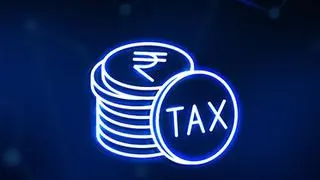It is now no secret that there are just over 50,000 taxpayers reporting taxable income of over ₹1 crore in a country with more than 1.2 billion people. With the Budget 2017 just around the corner, there are expectations that the Government may provide relief to soothe the hardships caused to citizens by the Government’s demonetisation drive.
Budget expectationsThe expectation is that the Budget will reduce the effective tax paid by individual taxpayers and high net worth individuals (HNIs). As various measures (including the recently concluded Income Disclosure Scheme 2016 and the ongoing Pradhan Mantri Garib Kalyan Yojana 2016) are expected to yield significant tax collections, and as a part of the overall strategy of widening the tax base, it is hoped that personal tax rates would be rationalised.
Another expectation is that the Budget will make the peak rate of 30 per cent applicable from a higher threshold (presently ₹10 lakh). This reduction would lower the effective tax rate for the high tax paying individuals. Further, the mechanism of tax collection at source (TCS) could be implemented for payments made towards major expenses such as foreign travel, weddings, and so on, so as to bring such category of individuals within the tax net.
Another matter reported in the media recently relates to taxation of capital gains from sale of equity shares and mutual fund investments. If the HNIs have remained invested for more than a year in such investments, presently there is no levy of capital gains tax on sale of such shares or equity mutual fund units.
Taxing HNIsHowever, there is speculation that the minimum holding period to qualify as long-term capital asset may be increased beyond the existing threshold of 12 months. If this period is increased to, say, 24 months, it would mean capital gains on sale of such investments held for 13 months would also be subject to tax as short-term capital gains (presently 15 per cent).
Therefore, any such revision in the long-term capital gains tax could result in an increased tax outflow for HNIs, who are more likely to have direct investments in the capital markets and require them to re-visit their financial plans.
Phasing out notional rentFurther, many HNIs are likely to have second/holiday/vacation homes/bungalows outside cities/in the countryside. As per the current tax regime, individuals who own such residential properties (which are not actually rented out at any part of the year) in addition to their self-occupied home, are required to offer notional/deemed rent from such additional property as taxable income and pay actual tax on such notional income accordingly. A long standing expectation is for this levy of tax on notional rental income to be done away with.
Recovering taxesComing to the indirect taxes, the proposed Goods & Services Tax (GST) regime is expected to bring in a four rate structure with the highest tax levy of 28 per cent (as compared to 5/12/18 per cent in other case of other goods) which may apply to items like luxury cars, high-end electronic goods.
Thus, although the intent of the Government may be to mitigate the tax outgo for lower income groups who have been impacted the most by demonetisation, the HNI group shall be closely waiting to see if the relief measures would usher in good times for them too.
Alok R Agarwal is a Senior Director and Manish Shah and Azhar Sakriwala are Director and Deputy Manager respectively in Deloitte Haskins & Sells LLP








Comments
Comments have to be in English, and in full sentences. They cannot be abusive or personal. Please abide by our community guidelines for posting your comments.
We have migrated to a new commenting platform. If you are already a registered user of TheHindu Businessline and logged in, you may continue to engage with our articles. If you do not have an account please register and login to post comments. Users can access their older comments by logging into their accounts on Vuukle.